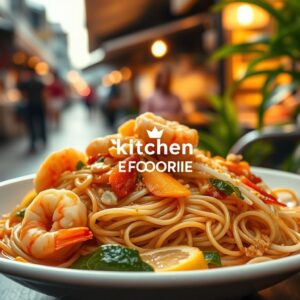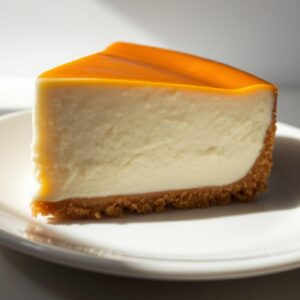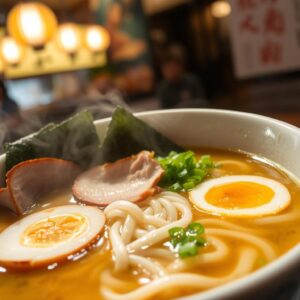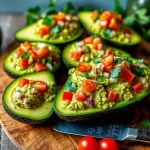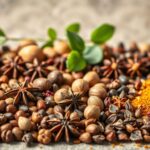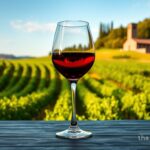Exploring the Bold and Elegant Bordeaux: France’s Timeless Wine Region
Bordeaux, one of the most prestigious wine regions in the world, is known for producing some of the finest wines, including the legendary red Bordeaux blends. Located in the southwest of France, Bordeaux’s unique terroir, historical winemaking techniques, and dedication to quality have solidified its place in the global wine scene. In this article, we’ll dive into what makes Bordeaux wines so exceptional and why they’re a must-try for any wine enthusiast.
The History of Bordeaux Wine
Bordeaux’s history of winemaking dates back over 2,000 years, beginning with the ancient Romans who planted the region’s first grapevines. Over time, Bordeaux became an essential trading hub for wine, exporting to countries such as England and the Netherlands. Today, Bordeaux is home to over 8,000 wineries and is considered one of the most important wine-producing regions in the world.
The region is renowned for its red wines, which are primarily blends of Cabernet Sauvignon, Merlot, and Cabernet Franc. Bordeaux’s commitment to producing wines that combine both structure and elegance has earned it a loyal following worldwide. To learn more about Bordeaux wines, consider reading this guide on regional international cooking that pairs perfectly with Bordeaux: Pairing Bordeaux with Regional Recipes.
What Makes Bordeaux Wines Unique?
Bordeaux wines stand out because of their complexity, ageability, and balance. The region is divided into several key areas, each known for producing wines with distinct characteristics. These are some of the main features of Bordeaux wines:
- Red Bordeaux Wines: The red wines of Bordeaux are primarily blends of Cabernet Sauvignon, Merlot, and Cabernet Franc, resulting in wines that have a beautiful balance of fruit, tannin, and acidity.
- White Bordeaux Wines: While Bordeaux is best known for its red wines, the region also produces exceptional white wines, such as Sauvignon Blanc and Sémillon. These wines range from crisp and fresh to rich and complex, offering a perfect match for seafood and lighter dishes.
- Ageability: Bordeaux wines are renowned for their ability to age well. Cabernet Sauvignon from Bordeaux, in particular, improves with age, developing deeper flavors and greater complexity as the years go by.
To dive deeper into Bordeaux’s distinctive winemaking, consider exploring this professional guide on the art of culinary arts & techniques in Bordeaux: Bordeaux Wine Masterclass.
The Bordeaux Wine Regions
Bordeaux is divided into several subregions, each with its own unique terroir. Here are the main wine-growing regions within Bordeaux:
- Left Bank: The Left Bank of Bordeaux is known for its Cabernet Sauvignon-dominant red wines. Famous regions in the Left Bank include Medoc, Haut-Medoc, and Pauillac, all known for producing some of the finest and most sought-after Bordeaux wines.
- Right Bank: The Right Bank is renowned for its Merlot-dominated wines, with the most famous areas being Saint-Émilion and Pomerol. These wines tend to be softer, more approachable, and fruit-forward compared to their Left Bank counterparts.
- Entre-Deux-Mers: Located between the Garonne and Dordogne rivers, this region is primarily known for producing crisp, refreshing white wines and rosé.
To learn more about Bordeaux’s professional cooking techniques and how to make the most of Bordeaux wines in your kitchen, check out this detailed cookbook: Bordeaux Cooking Guide.
Bordeaux Wine Tasting Experience
Tasting Bordeaux wines is an immersive experience that involves much more than just sipping a glass of wine. Here’s what you can expect from a Bordeaux wine tasting:
- Aromas: Bordeaux wines are known for their complex aromas, which can include notes of blackberry, currant, tobacco, cedar, and even earthy aromas like mushrooms or leather.
- Flavors: The flavor profile of Bordeaux wines is often dominated by deep dark fruit flavors like blackcurrant and plum, balanced with earthy, herbal, and sometimes smoky elements. The tannins in red Bordeaux wines are often firm, providing structure and aging potential.
- Acidity: Bordeaux wines have balanced acidity, making them excellent candidates for food pairings.
If you’re a beginner in wine tasting and want to learn more about cooking for dummies and pairing Bordeaux with everyday meals, this practical guide is perfect for you: Bordeaux Wine Pairings for Beginners.
Food Pairings That Complement Bordeaux Wines
Bordeaux wines pair wonderfully with a variety of dishes, from main courses & side dishes to comfort food cooking. Here are some pairing suggestions to enhance your Bordeaux wine experience:
- Red Meats: Bordeaux red wines, especially those from the Left Bank, pair beautifully with steak, lamb, and roast beef. The robust tannins of the wine help cut through the richness of the meat.
- Cheese: Try pairing Bordeaux reds with rich, creamy cheeses like Brie, Roquefort, or Comté. For white Bordeaux wines, pair them with lighter cheeses like goat cheese or chèvre.
- Duck: The rich, flavorful meat of duck works wonderfully with both red and white Bordeaux wines. Pair it with a Pomerol for a luxurious experience.
- Seafood: White Bordeaux wines are an excellent match for seafood dishes such as grilled fish, lobster, and oysters.
If you’re looking for great recipes that pair well with Bordeaux wines, check out this treasure trove of international cooking recipes: Bordeaux Wine Recipes.
Bordeaux Wines and Their Health Benefits
Consuming Bordeaux wines in moderation can provide some health benefits, similar to other wines. The antioxidants present in Bordeaux red wines, such as resveratrol, contribute to overall health. Here are some benefits of moderate Bordeaux wine consumption:
- Heart Health: Studies have shown that moderate consumption of Bordeaux red wines can reduce the risk of heart disease by promoting good circulation and reducing inflammation.
- Anti-Aging: The antioxidants in Bordeaux wines help fight the signs of aging by neutralizing free radicals in the body, supporting skin health, and promoting longevity.
- Stress Relief: Like other wines, a glass of Bordeaux can help promote relaxation and reduce stress, making it the perfect choice for unwinding after a long day.
For more information on how Bordeaux wines fit into a diets & weight loss regimen, check out this health-focused article: Healthy Bordeaux Wine Choices.
The Global Appeal of Bordeaux Wines
Bordeaux’s influence extends far beyond France. The region’s winemaking methods have influenced wine production across the globe. Wineries in countries like Argentina, Australia, and the United States (particularly in Napa Valley) have adopted Bordeaux’s techniques to create wines with similar profiles.
For an in-depth exploration of Bordeaux wines’ global impact, consider reading this expert article: The Global Influence of Bordeaux Wines.
Conclusion
Bordeaux wines are a true representation of the elegance and tradition of French winemaking. Whether you’re savoring a Cabernet Sauvignon from the Left Bank or enjoying a Merlot from the Right Bank, Bordeaux wines are designed to impress. Their complexity, aging potential, and ability to pair beautifully with a variety of dishes make them a must-have for wine lovers around the world.
For an in-depth guide to Bordeaux wines and wine pairings, consider exploring this book: Bordeaux Wine Masterclass.




